9 Best Herbal Tinctures For Dandruff
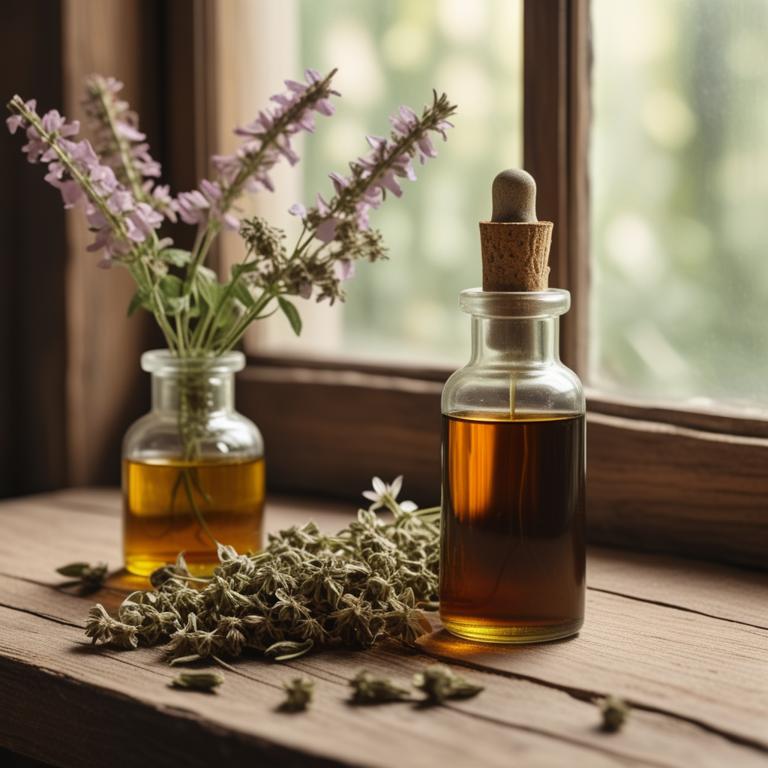
Herbal tinctures for Dandruff are natural liquid extracts made from various herbs and plants that have been traditionally used to treat scalp conditions like dandruff.
These tinctures work by balancing the scalp's natural pH, reducing inflammation, and inhibiting the growth of fungi and bacteria that contribute to dandruff.
Some examples of herbal tinctures that can be used to treat dandruff include Tea Tree Oil Tincture, which has antifungal and antibacterial properties, Neem Tincture, which has anti-inflammatory and antiseptic properties, and Rosemary Tincture, which stimulates blood flow and reduces dandruff symptoms.
Additionally, other herbal tinctures like Aloe Vera, Sage, and Lavender can also be used to soothe and calm the scalp, while reducing flaking and itching associated with dandruff.
According to "JPMA. The Journal of the Pakistan Medical Association", tinctures for dandruff, specifically myrtus communis L. solution, were found to be effective in treating dandruff, showing significant improvement in all outcome measures and comparable efficacy to ketoconazole.
Below there's a list of the 9 best herbal tinctures for dandruff.
- 1. Rosmarinus officinalis tinctures
- 2. Lavandula angustifolia tinctures
- 3. Aloe vera tinctures
- 4. Eucalyptus globulus tinctures
- 5. Echinacea purpurea tinctures
- 6. Ginkgo biloba tinctures
- 7. Melaleuca cajuputi tinctures
- 8. Cymbopogon citratus tinctures
- 9. Cinnamomum verum tinctures
Also you may be interested in...
TODAY'S FREE BOUNDLE
Herb Drying Checklist + Herbal Tea Shopping List + Medicinal Herbs Flashcards
Enter you best email address below to receive this bundle (3 product valued $19.95) for FREE + exclusive access to The Aphotecary Letter.
$19.95 -> $0.00
1. Rosmarinus officinalis tinctures
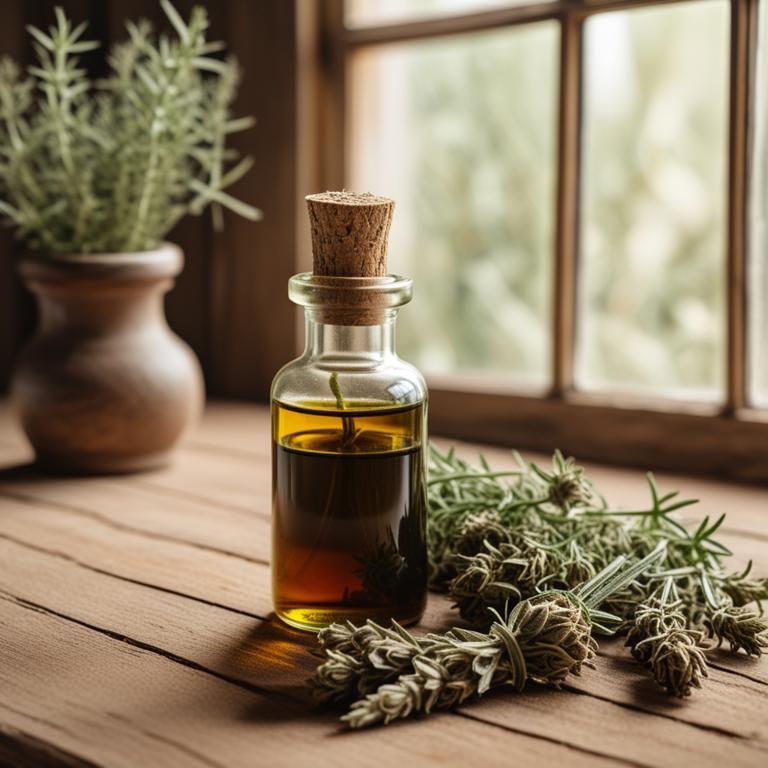
Rosmarinus officinalis tinctures have been traditionally used to treat dandruff due to their antifungal, antibacterial, and anti-inflammatory properties, which help to soothe and calm the scalp.
The antifungal properties of rosmarinic acid, a bioactive constituent of this herbal preparation, inhibit the growth of Malassezia yeast, a common cause of dandruff.
By reducing inflammation and promoting a healthy scalp environment, rosmarinus officinalis tinctures help to prevent flaking and itching associated with dandruff.
The benefits of using rosmarinus officinalis tinctures to treat dandruff include reduced symptoms, improved scalp health, and a natural, chemical-free approach to managing this common scalp condition.
2. Lavandula angustifolia tinctures
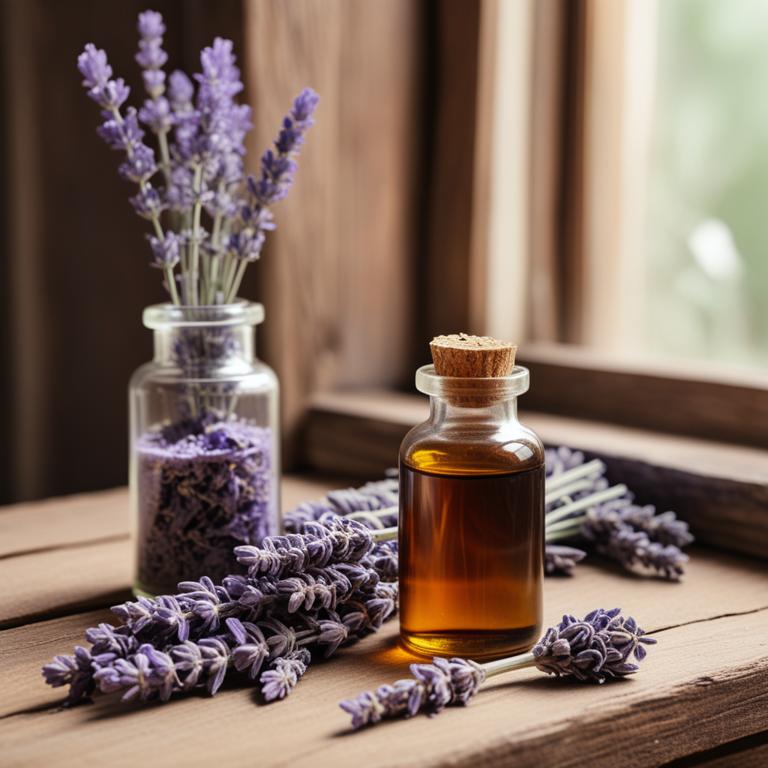
Lavandula angustifolia tinctures have been traditionally used to treat dandruff, a common scalp condition characterized by flaky skin and itchiness.
The antifungal and antibacterial properties of lavender oil, a key bioactive constituent of Lavandula angustifolia, help to combat the fungal and bacterial overgrowth that contributes to dandruff.
The anti-inflammatory properties of the tincture also help to soothe and calm the scalp, reducing redness and itching associated with dandruff.
By reducing fungal and bacterial growth and inflammation, Lavandula angustifolia tinctures provide a natural and effective way to alleviate dandruff symptoms and promote a healthy scalp.
3. Aloe vera tinctures
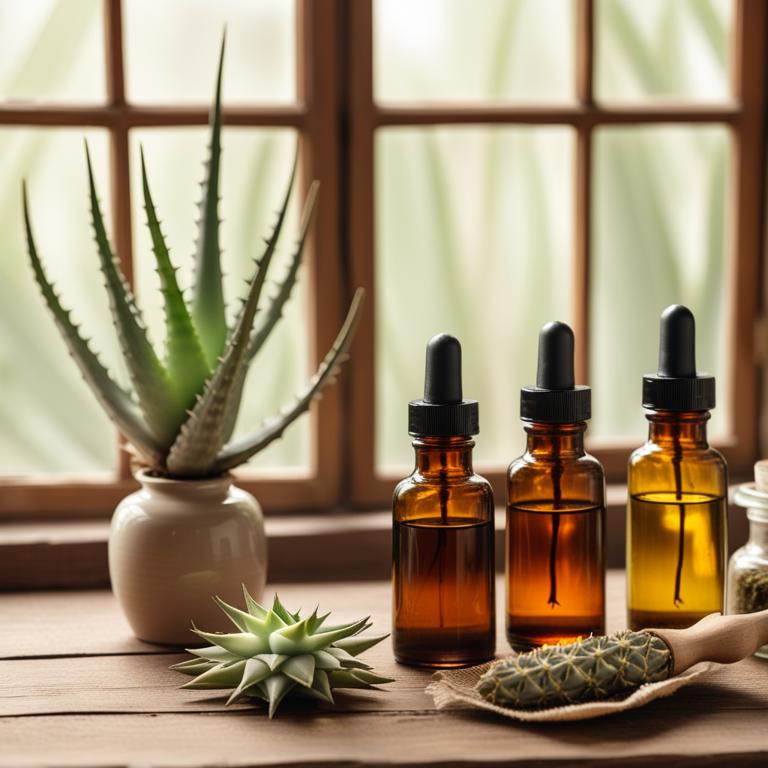
Aloe vera tinctures have been traditionally used to treat dandruff due to their anti-inflammatory and antifungal properties, which help to soothe and calm the scalp, reducing irritation and flaking.
The bioactive constituents present in aloe vera tinctures, such as aloin and aloe-emodin, have been shown to exhibit potent antifungal and antibacterial activities, helping to control the growth of yeast and other microorganisms that contribute to dandruff.
By using aloe vera tinctures, individuals can experience relief from dandruff symptoms, including reduced itching, flaking, and redness, as well as improved scalp health and a refreshed appearance.
Regular use of aloe vera tinctures can also provide long-term benefits, such as preventing the recurrence of dandruff and promoting a healthy, balanced scalp ecosystem.
Related Study
According to "Current topics in medicinal chemistry", Aloe vera tinctures for dandruff have been reported to demonstrate anti-dandruff activity by disrupting the microbial growth associated with dandruff formation.
4. Eucalyptus globulus tinctures
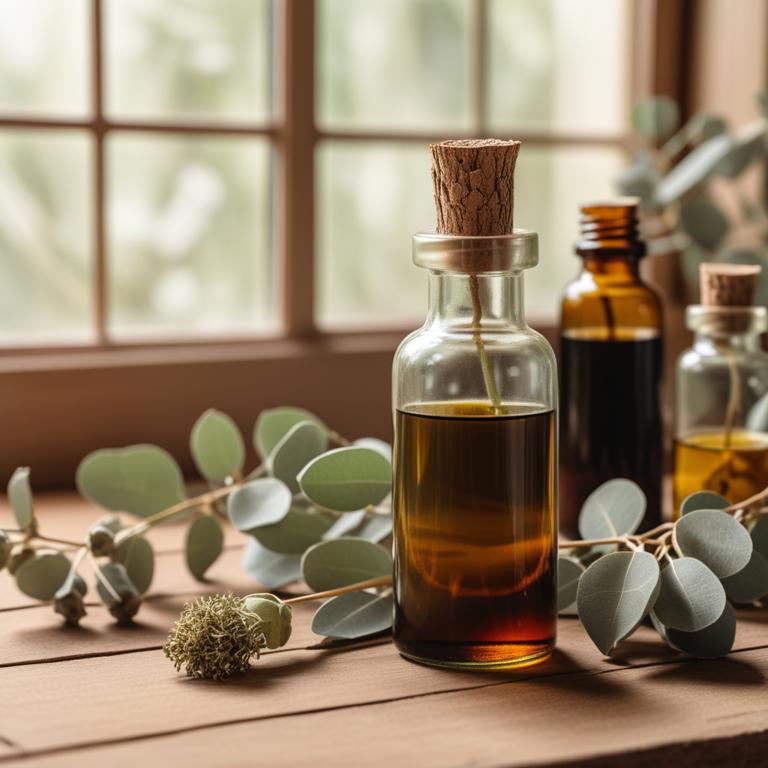
Eucalyptus globulus tinctures have been traditionally used to treat dandruff, an itchy and flaky scalp condition, due to their antifungal, anti-inflammatory, and antimicrobial properties.
The bioactive constituents present in Eucalyptus globulus, such as flavonoids, phenolic acids, and terpenoids, help to reduce inflammation, prevent fungal growth, and soothe the scalp, thereby alleviating dandruff symptoms.
By using Eucalyptus globulus tinctures, individuals can benefit from a natural and gentle treatment that promotes healthy scalp conditions, reduces flaking, and prevents further irritation.
The benefits of using Eucalyptus globulus tinctures to treat dandruff include a reduction in flaking, soothing of the scalp, and prevention of fungal growth, making it a popular herbal remedy for this common scalp condition.
5. Echinacea purpurea tinctures

Echinacea purpurea tinctures have been traditionally used to treat dandruff due to their anti-inflammatory, antifungal, and antibacterial properties.
The tincture helps to treat dandruff by reducing inflammation and promoting a healthy scalp environment, thereby preventing the growth of fungal and bacterial agents that cause the condition.
The bioactive constituents of Echinacea purpurea, including alkylamides, glycoproteins, and polyphenols, contribute to its therapeutic effects by modulating the immune system and fighting off pathogens that contribute to dandruff.
The benefits of using Echinacea purpurea tinctures to treat dandruff include reduced flaking, improved scalp health, and a decrease in the severity of symptoms associated with the condition.
6. Ginkgo biloba tinctures

Ginkgo biloba tinctures have been traditionally used to treat dandruff due to its anti-inflammatory and antifungal properties, which help to soothe the scalp and reduce flaking.
The herbal preparation's ability to improve blood circulation and reduce oxidative stress also aids in treating dandruff by promoting a healthy scalp environment.
Bioactive constituents such as flavonoids, terpenoids, and bilobalide present in Ginkgo biloba tinctures are responsible for its therapeutic effects, including antioxidant and anti-inflammatory actions that help to alleviate dandruff symptoms.
The benefits of using Ginkgo biloba tinctures for dandruff treatment include reduced flaking, itching, and inflammation, as well as improved scalp health and a reduction in the risk of further infections.
7. Melaleuca cajuputi tinctures
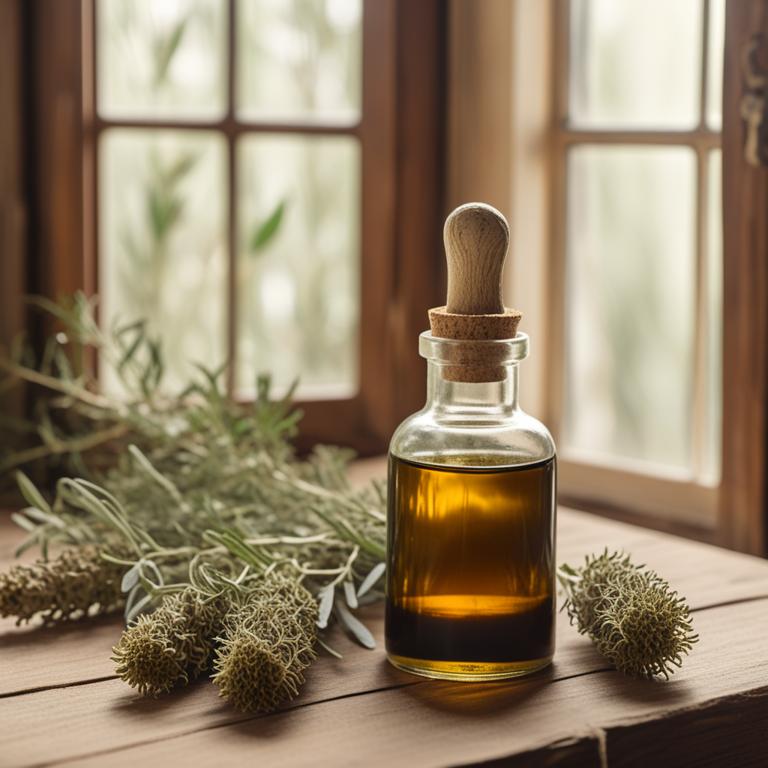
Melaleuca cajuputi tinctures have been traditionally used to treat dandruff, a common scalp condition characterized by flaking skin and itching.
The antifungal and anti-inflammatory properties of this herbal preparation help to treat dandruff by reducing the growth of fungal organisms and soothing the scalp.
The bioactive constituents of Melaleuca cajuputi, including sesquiterpenes and flavonoids, contribute to its therapeutic effects by inhibiting the production of inflammatory mediators and promoting a healthy scalp environment.
Regular use of Melaleuca cajuputi tinctures may help to alleviate dandruff symptoms, promote scalp health, and prevent further flare-ups.
8. Cymbopogon citratus tinctures
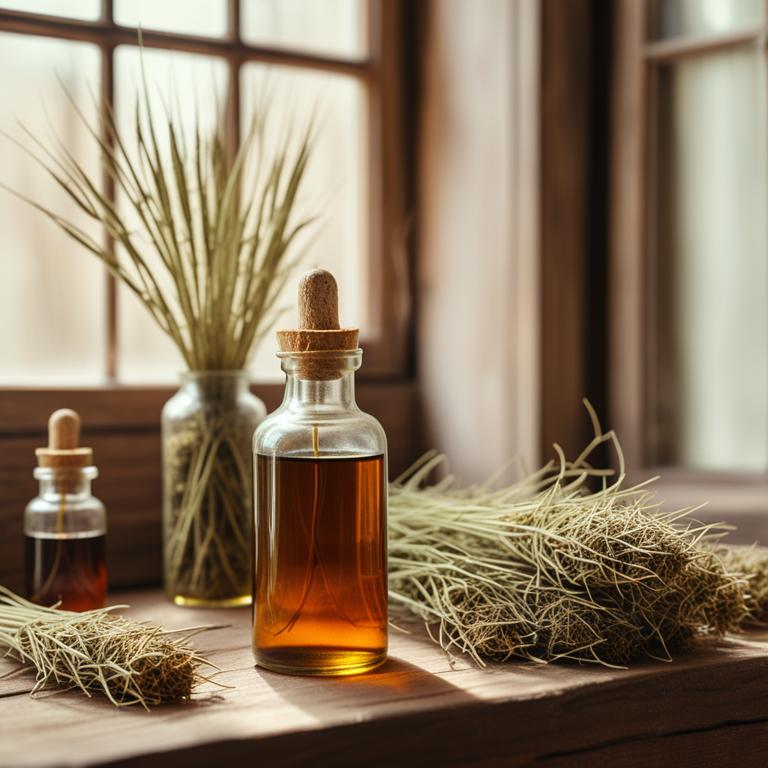
Cymbopogon citratus tinctures, derived from the leaves of the lemongrass plant, have been traditionally used to treat dandruff due to their antifungal and anti-inflammatory properties.
The bioactive constituents, including citral and limonene, in these tinctures help to soothe and calm the scalp, reducing flaking and inflammation associated with dandruff.
By inhibiting the growth of Malassezia yeast, a common cause of dandruff, Cymbopogon citratus tinctures help to control the symptoms of this ailment and promote a healthy scalp.
The benefits of using these tinctures to treat dandruff include reduced flaking, itchiness, and inflammation, as well as improved scalp health and reduced risk of further infection.
Related Study
According to "Current topics in medicinal chemistry", Cymbopogon citratus tinctures have been reported to demonstrate anti-dandruff activity by disrupting microbial growth associated with dandruff formation.
9. Cinnamomum verum tinctures
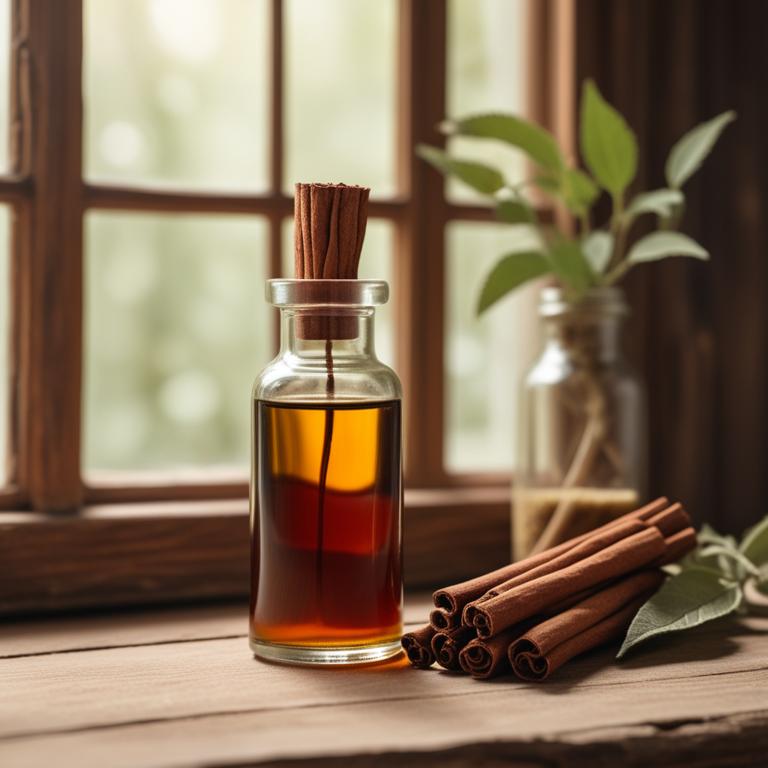
Cinnamomum verum tinctures have been traditionally used to treat dandruff due to their antifungal and antiseptic properties, which help to prevent the growth of Malassezia, a fungus that contributes to this condition.
The tincture's anti-inflammatory and soothing effects also help to reduce redness and itching associated with dandruff.
Cinnamomum verum tinctures contain bioactive constituents like cinnamaldehyde and linalool, which have been shown to exhibit antifungal and antimicrobial properties that aid in the treatment of dandruff.
Regular use of Cinnamomum verum tinctures can help to alleviate dandruff symptoms, promote healthy scalp conditions, and provide a natural remedy for this common scalp ailment.